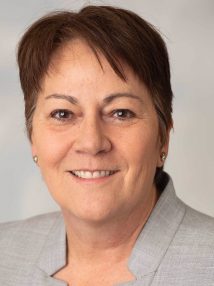
Carbon-Free Mining Revolution
Esti Ukar is a research scientist at the Jackson School of Geosciences Bureau of Economic Geology. She earned her bachelor of science in geology at Euskal Herriko Unibertsitatea/ Universidad del País Vasco in Spain in 2003 and her doctorate in geological sciences at the Jackson School in 2010. Ukar is leading a project to develop technology for mining critical minerals...
Leaders for the Energy Transition
Not long ago, a career in energy, meant one thing: a career in fossils fuels. The energy transition to lower-carbon fuels is changing that. From solar and wind, to geothermal and hydrogen, and more, the world is running on a more diverse power supply and shows no signs of slowing down. And while oil and gas are projected to remain...
Saving Austin’s Water
On a good day, Big Sandy Creek winds 12 miles through the rural Texas Hill Country, carrying water to the Big Sandy arm of Lake Travis and helping the Jones Brothers Park boat ramp remain a popular launching point. Today, the creek is bone dry, as it has been for weeks, leaving the boat ramp nothing more than a concrete...
News
Geothermal Anywhere
Historically, geothermal power has been limited to particular hot spots around the world. A new...
How Faults Heal
Scientists have a new way to study the world’s most powerful earthquakes after researchers found...
Tracking Tropical Plankton
Modern plankton biodiversity in the tropics is the result of 8 million years of global...
Making Earthquakes
Researchers at the University of Texas Institute for Geophysics have constructed an experimental device designed...
Science, Feedback and Friends
In February 2023, the Jackson School of Geosciences held its 12th annual student research symposium,...
Explaining the Andes
Based on their shared geologic history, one would expect the topography of the Andes mountains...
New Climate Science Degree
The Jackson School of Geosciences is launching a new degree option in climate system science...
Advancing the Hydrogen Economy
The hydrogen economy is growing, and the GeoH2 research consortium at the Bureau of Economic...
Awards
Professor Steven Grand was awarded the 2022 Inge Lehmann Medal by the American Geophysical Union....
Here Cave Kitty, Kitty
This spring, Jackson School of Geosciences doctoral student John Moretti led a successful mission to...
Continuing Education for Carbon Storage
A new extension course in carbon storage is set to launch this summer. The online...
Dean's Welcome

Welcome to The Geoscientist!
From building resilience to climate change impacts and natural hazards, to finding ways to sustainably meet global resource and energy demands, understanding and applying geosciences is critical to resolving society’s greatest challenges.
Here at The University of Texas at Austin Jackson School of Geosciences, we know how important geosciences are to the world. But the breadth of geosciences is so extensive, and our work so complexly intertwined with other disciplines, that it is not widely understood by the public or by many students entering universities across the country. We need to share our stories to increase understanding and support, and to attract the next generation of geoscientists. As we are fond of saying at the Jackson School, “the world needs geoscientists!”
We launched The Geoscientist to highlight some of the important science at the Jackson School, to explain its relevance, and to paint a picture of the talented individuals doing this work. If you are a geoscientist, you may find our stories of professional interest. If you are new to geosciences, or are a member of the curious public, you may be surprised by the range and importance of our work. If you are a student wanting to help solve global challenges, you may see yourself in the next generation of geoscientists!
Geoscientists are helping cities and communities manage and protect critical water supplies in the face of climate change. They are leading the effort towards a carbon-neutral energy economy, keenly aware of the need to expand our critical resource base and reduce carbon emissions while meeting the growing demand for energy and energy equity that a healthy global society requires. And they are working to better predict and prepare our cities for natural disasters like hurricanes and earthquakes.
It is an exciting time to be a geoscientist! If you’re interested in learning more about the geosciences and what the Jackson School may have to offer you as a collaborator, student, or curious person, we welcome your interest and look forward to talking with you!
Happy reading!
Claudia Mora, Dean

